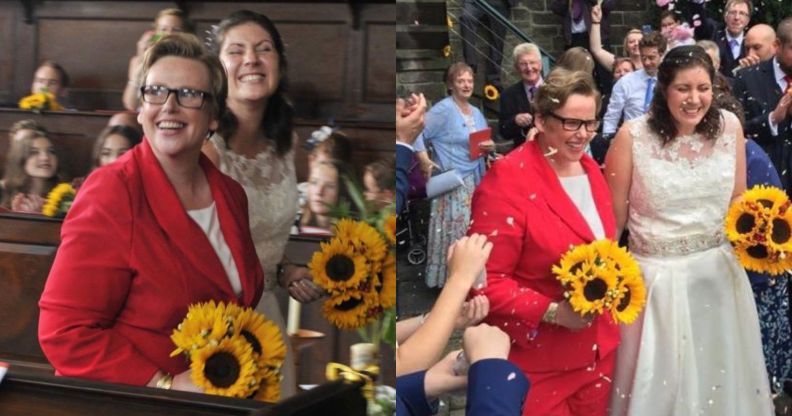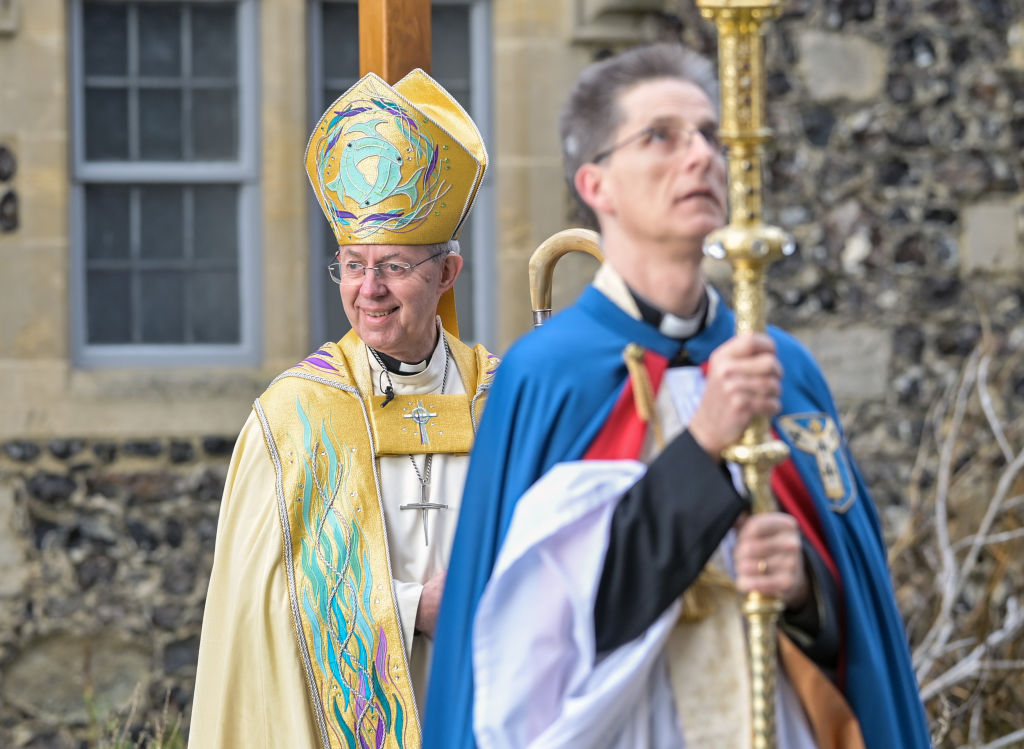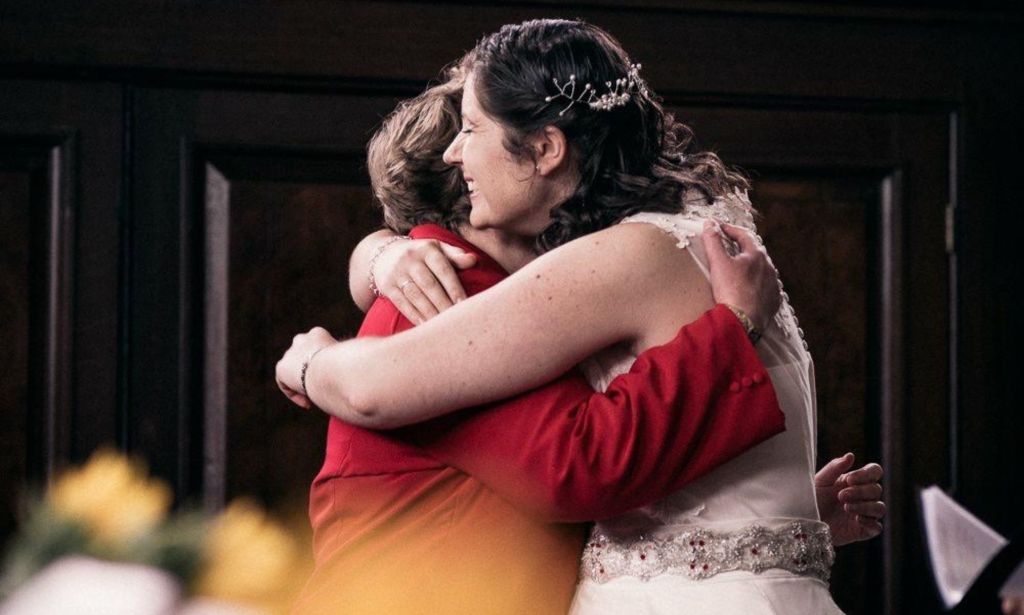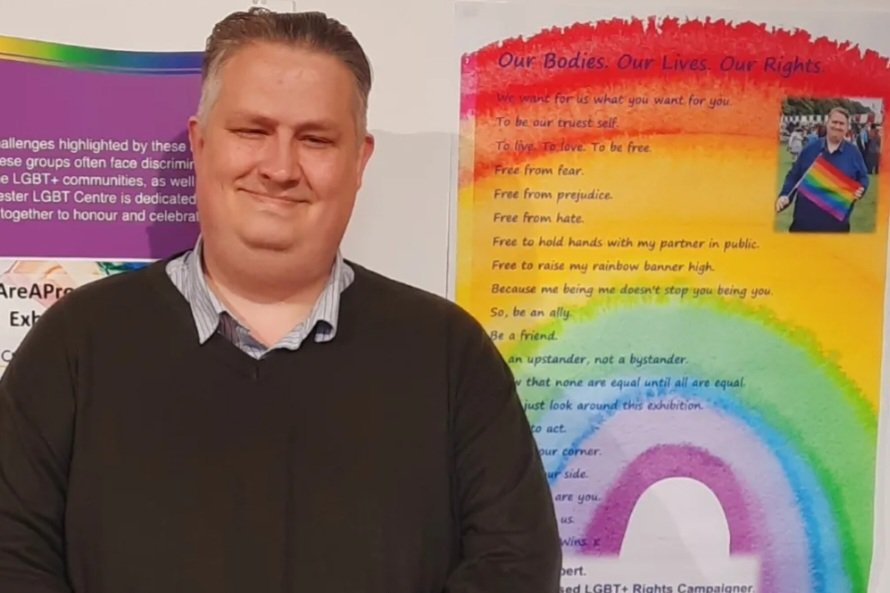Growing up gay in the Church of England: ‘I tried to be straight. It was awful’

Sarah Barley-McMullen on her wedding day. (Supplied)
Growing up in the Church of England, everything Sarah Barley-McMullen heard about homosexuality was that it was “sinful” and “wrong”.
That made the realisation that she was attracted to women all the more difficult.
“I tried to have boyfriends. I tried to be straight. I was in so much conflict within myself,” she tells PinkNews.
The church was an “awful” place to grow up in for Sarah. She was unable to accept her sexuality until she was 19 when her mother – also a woman of faith – took her aside and said it was time for her to embrace being gay.
“I’ve always had the love and support of my parents, my family around me, who have always been full of faith and full of compassion and love and defence of me,” she says.
“What that did was, it gave me the courage to be open about my sexuality in forums where other people were very quiet.”
Through it all, her belief in God has never wavered – but her faith in the Church of England has.

The church has been roundly criticised for failing LGBTQ+ Christians.
On 20 January its bishops issued an apology for failing the community – but it was far from convincing, given that three days prior those same bishops had once again refused to allow clergy to marry same-sex couples in their churches.
Under new plans, same-sex couples will be allowed to get married elsewhere and receive a blessing in the Church of England.
It’s a small gesture, but it rings hollow for LGBTQ+ Christians who have already experienced torment due to church homophobia.
Sarah was able to marry in a church in 2016, but it was a Unitarian Chapel. She and her wife were “the first same-sex couple in Derbyshire to get married in a place of worship”, she reflects.

While she’s distanced herself from the Church of England, she felt “angry” when news broke that the bishops had decided against allowing same-sex marriages.
“I was embarrassed to say I was an Anglican Christian.”
Dealing with the church’s homophobia hasn’t always been easy for Sarah, but she’s never let it affect her relationship with God.
“I see God as bigger than the church and bigger than the House of Bishops.
“God is more meaningful and protective of me than the church as a gay woman.”
LGBTQ+ Christians hold out hope for the Church of England
Sarah’s experience is far from unique – countless LGBTQ+ people who grew up in the Anglican faith have had to find new ways of expressing their love of God because of the church’s homophobia.
Mathew Hulbert grew up in the Church of England and still holds his faith close – but finding a place to channel that faith hasn’t always been easy.
Like Sarah, he realised he was gay in his early teens – that led to him stepping away from religion entirely for a number of years because he believed his sexuality prevented him from being a Christian.
“Now I absolutely believe that’s not the case.”

He’s since returned to worship, but he’s pragmatic about what he refers to as “the human church”.
“The church on earth has often been just dreadful in regards to relations with LGBT+ people, so I have absolute respect for those who feel the church is no longer a safe space for them.”
Thankfully, Mathew has been able to find an “inclusive” church where he can express his faith. It’s still part of the Church of England, so it’s bound by the same rules, but his minister supports LGBTQ+ people.
“I was there yesterday and was very pleased that my minister made a point of stating how much he disagreed with what had been decided.”
“He made a point of speaking to me before and after the sermon to make sure I knew how loved and valued I was in our church.”
Still, that doesn’t take away from the fact that he would never be allowed to get married in his own church.
“It is frustrating when I hear the marriages being read out I know that, for the moment at least, I’ll never hear the names of two men or two women,” he says.
“But I am an optimist and I believe we’ll get there in the end – hopefully I’m not very, very old by the time it happens.”

